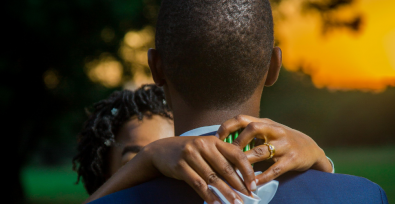Child marriage continues to shatter the lives of millions of girls globally, with over 12 million underage marriages occurring each year. Despite child marriage laws and growing awareness, systemic failures—including inadequate law enforcement, cultural norms, and economic hardships—perpetuate this harmful practice. Reported by The Telegraph, the stories of Mozambique’s child brides exemplifies these structural challenges and the urgent need for a collective response.
Constância’s story
Constância’s mother arranged her engagement at just 13 years old. However, her mother assured her that she would be allowed to finish school before marrying. But the 25-year-old man grew impatient over time and Constância’s mother conceded to the marriage one year later.
Constância described the pain of losing their childhood:
“It was bad. I didn’t want to leave my father and I thought I wouldn’t be able to study, or see my friends or play football anymore,” … “Every day was difficult for me. All I could think about was going home.”
Thanks to a friend from school, Constância got in touch with the International Child Development Programme (ICDP), a Norway-based NGO. The NGO informed her parents that child marriage was against the law and convinced them to end the marriage.
Systemic drivers of child marriage
Constância’s story is common in Mozambique, where nearly half of girls marry by 18. Despite outlawing the practice in 2019, the country still has one of the world’s highest child marriage rates. Enforcement remains weak due to systemic issues like incomplete birth registrations and deeply rooted cultural norms.
The decision to marry often begins with an initiation rite, where girls are taught to be adults. These secret rituals, held by female village elders, teach menstruating girls period hygiene and how to have sex and satisfy men. Many girls lack birth certificates, leaving communities to rely on physical changes, such as menstruation, to determine their readiness for marriage.
Gaia Segola, a child protection specialist at Unicef’s Mozambique headquarters in Maputo says:
“We have a law that says no one can marry before the age of 18, but less than 50 per cent of children have a proper birth registration to establish their age, so communities will just look at physical changes in the child to determine their readiness to be married,”
Poverty compounds the problem. Many families see marriage as a survival strategy, shifting the economic burden of raising a daughter onto her husband. Yara, a 16-year-old, faced this reality when her parents forced her to marry an 18-year-old student after she became pregnant.
Expelled from her home and stripped of her support network, Yara described the feeling of abandonment:
“I used to be angry a lot, even when I wasn’t provoked, but thanks to the training and my instructor I can control my feelings,”
The importance of raising awareness
In remote areas, schools are scarce and underfunded. This leads to many girls not having access to contraceptives of information about sex.
Segola explains:
“Even after eight years of schooling, most students still cannot read or write. If you drop out of school, marriage becomes the only aspiration because there are no other options.”
The Mozambican NGO Nweti goes from village to village, conducting ‘dialogues’ with locals to raise awareness of the problems surrounding child marriage.
In Rapale, Mozambique, UNICEF’s capoeira project, funded partly by the UK government and supported by the International Child Development Programme, helps girls escape the trauma of child marriage. Through self-help sessions and capoeira, the initiative empowers them to rebuild confidence, regain agency, and envision brighter futures.
A call to end child marriage
The global impact of child marriage is devastating, perpetuating cycles of poverty, inequality, and violence. It robs girls of their education, autonomy, and futures, leaving them vulnerable to abuse and exploitation.
Join us in the fight to end child marriage worldwide. Sign our petition today and help ensure that every girl, no matter where she lives, has the chance to grow, learn, and thrive. Together, we can put an end to this injustice and protect the rights of girls everywhere.







Freedom United is interested in hearing from our community and welcomes relevant, informed comments, advice, and insights that advance the conversation around our campaigns and advocacy. We value inclusivity and respect within our community. To be approved, your comments should be civil.